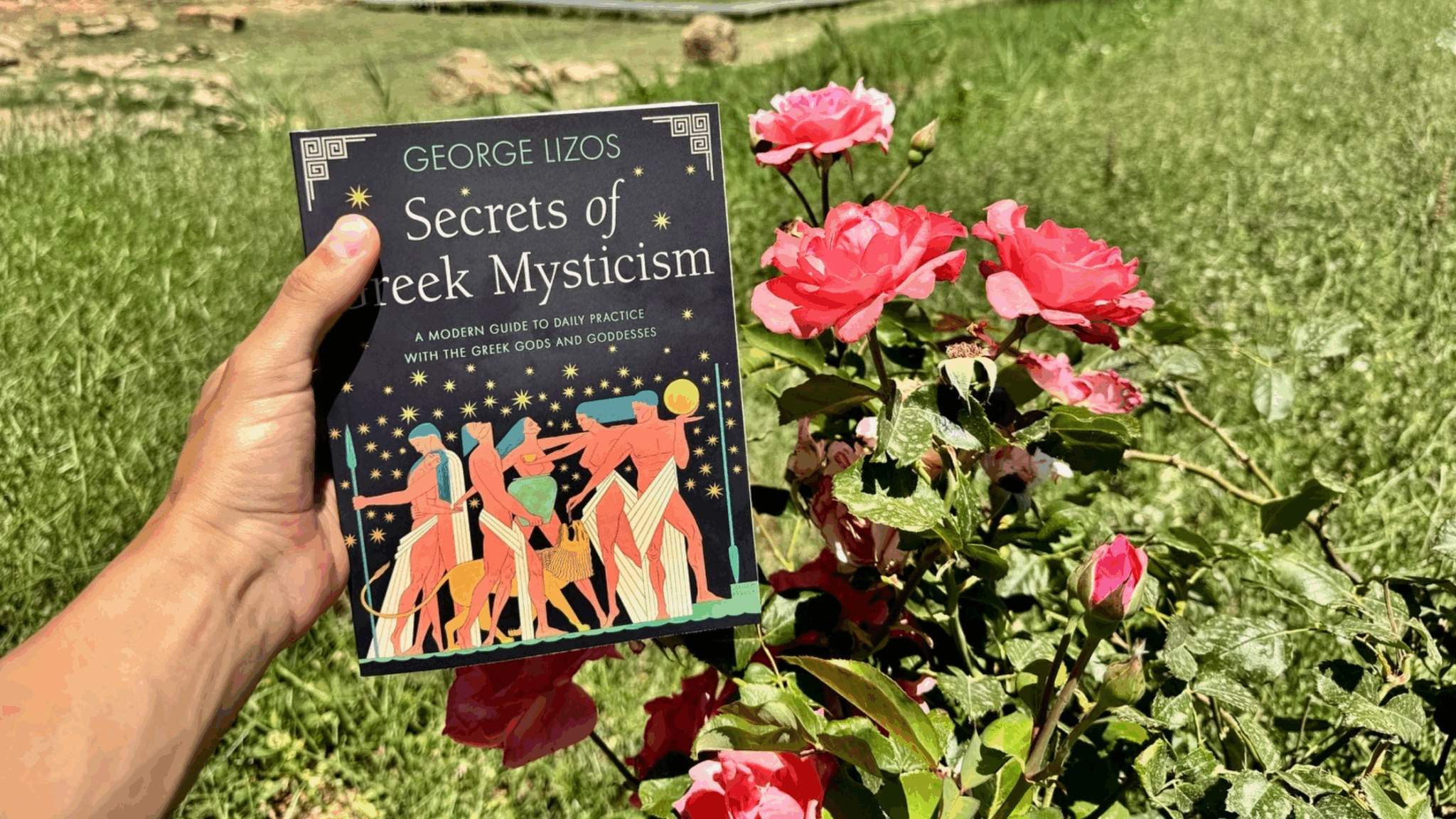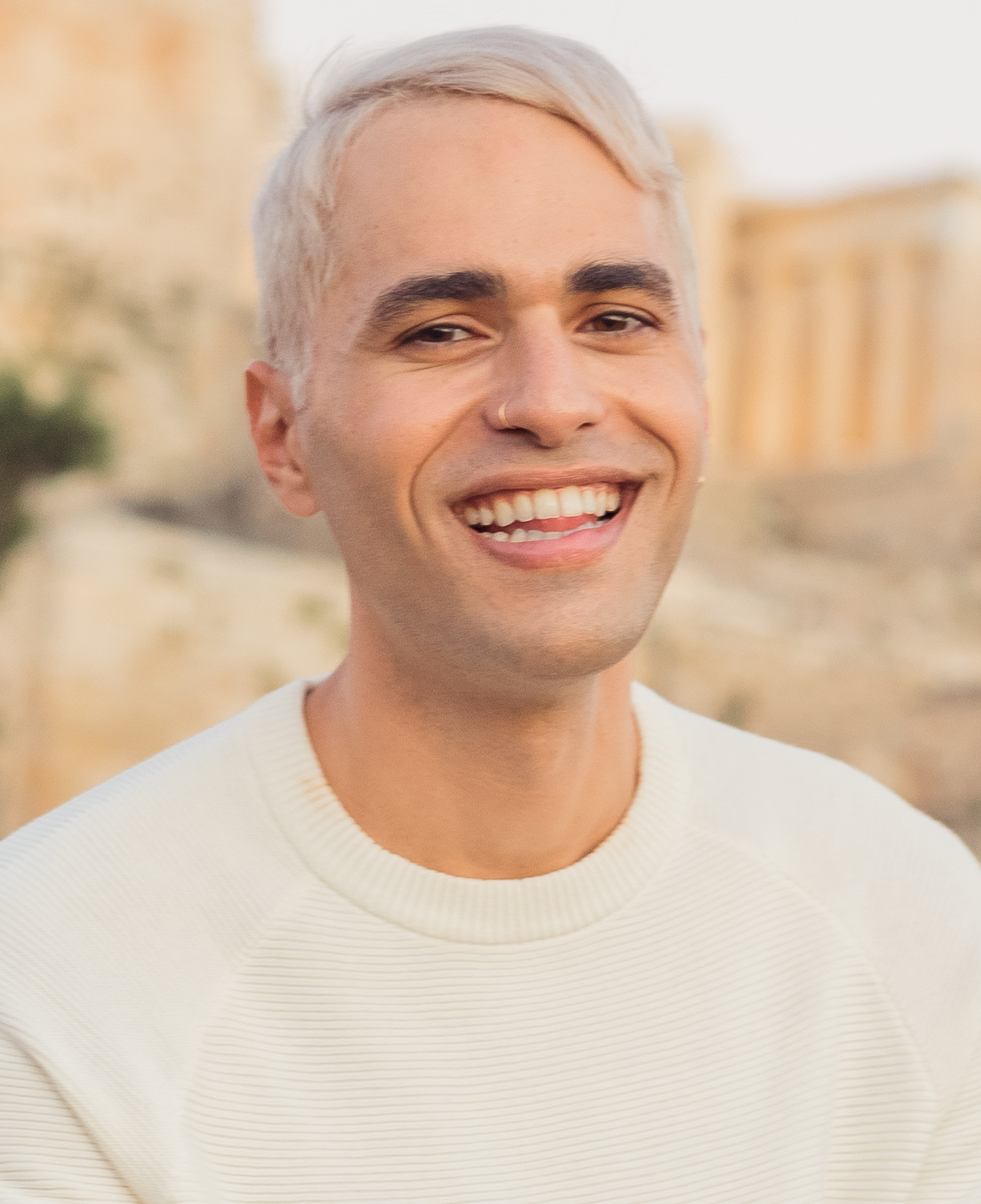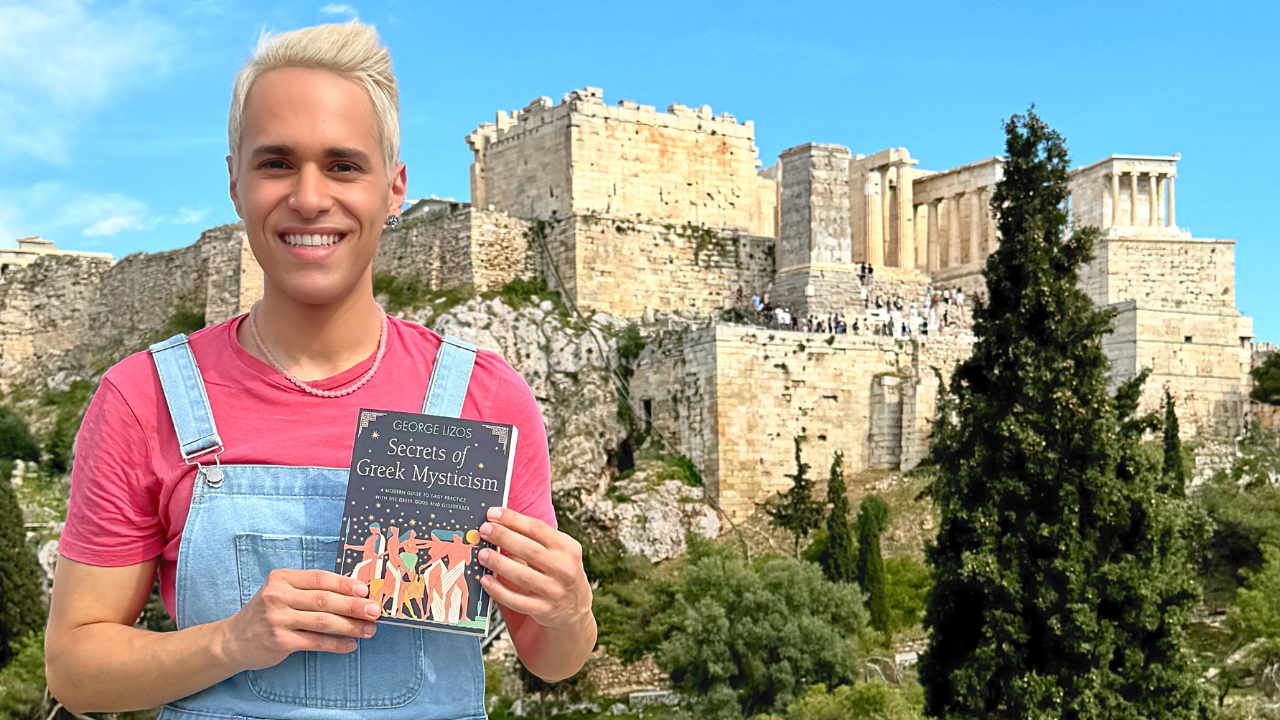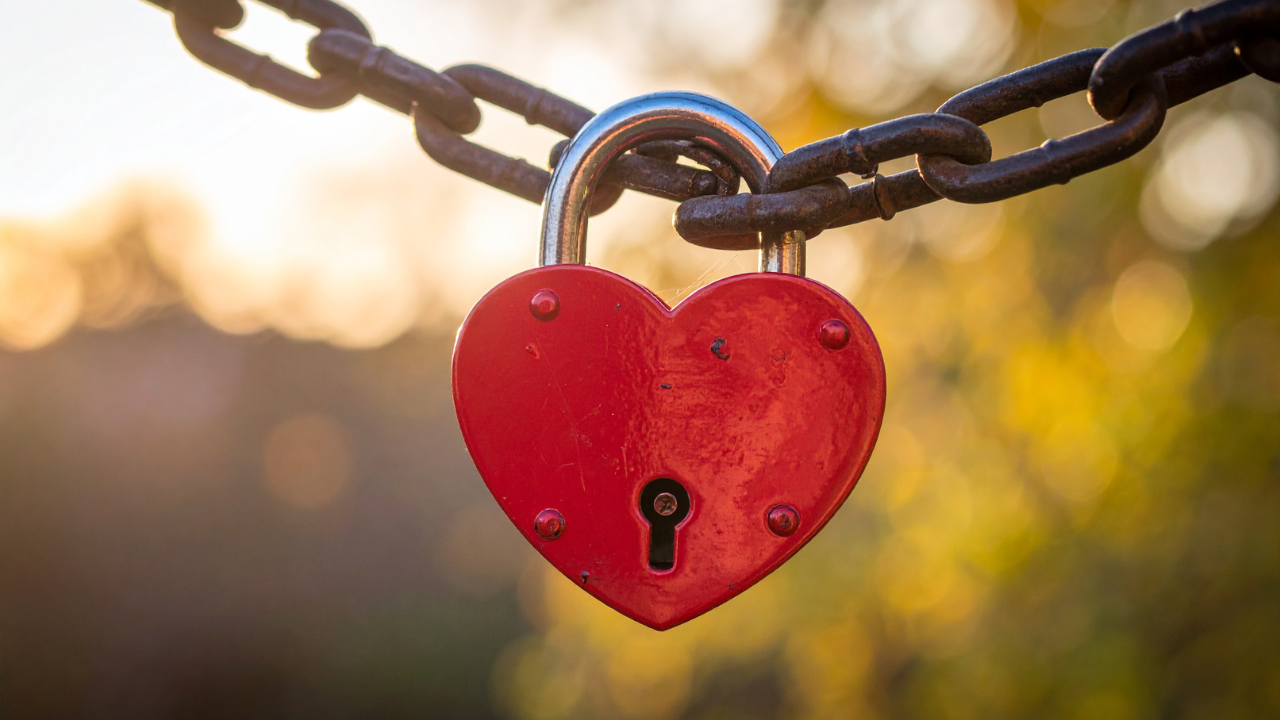
Since publishing Secrets of Greek Mysticism in 2024, I’ve received a lot of support and enthusiasm from readers worldwide — but also quite a bit of criticism. Honestly, I was surprised because this was the first time I’d faced backlash for a book. At the same time, I was curious about why this was happening, so I talked to people to find out.
I’ve found that while the New Age community I was used to writing for has mostly been accepting and welcoming of new ideas, this hasn’t always been true with other groups. In fact, I’ve noticed different reactions from various communities.
Most of the criticism of my books mainly comes from online Hellenists. So, I reached out to some for feedback. After speaking with a few, I noticed that the critiques are coming from a reconstructive perspective, as many Hellenists follow a reconstructionist approach. Therefore, if there’s no ancient reference to a practice, or if I do not hold firmly to a reconstructionist framework, then my teachings are invalidated for contemporary practitioners.
I’ve received mixed reviews from practitioners within the Greek community. Within the Hellenic Ethnic Religion, practitioners have been accepting and supportive, as the bulk of the book is based on and extends the teachings of our tradition, while making them accessible and relatable to a new audience. Other groups within the Greek community have been somewhat critical but largely okay with it. Practitioners of Paganism and witchcraft have been largely welcoming and supportive. These groups are generally eclectic in their practice anyway, so they were open to my ideas and my understanding of what I’ve tried to achieve with the book.
With that said, this response aims to address the criticism I’ve received from Hellenists. While I’ve resisted the urge to respond to criticism until now, I’ve finally decided it’s worth addressing, as I believe it’s essential to build bridges and encourage collaboration between groups who honor the Gods rather than allow divisions to grow.
My goal in the following responses is to clarify my perspective and, hopefully, find common ground so we can work together on something we all care about, instead of creating division and hatred. These are the most frequent pieces of criticism I’ve received. I’ll add new responses to blog posts as and when new criticisms come up:
“It’s more New Age stuff with hellenistic wrapping paper.”
While promoting this book, I appeared on different podcasts. I’d go on New Age podcasts, and they’d tell me, “the book’s quite pagan.” I’d go on pagan podcasts, and they’d tell me, “the book’s quite New Agey.” The truth is, it’s both because I am both.
We all have a journey, and here’s mine: I grew up as an Orthodox Christian in Cyprus, which I practised religiously until I was 15. Disappointed that Christianity couldn’t accept my homosexuality (which almost led me to take my life) and disillusioned by the problematic aspects of the religion, I embarked on a spiritual journey of discovery.
From the age of 15 until 27, I studied and practised different religions and spiritual traditions, ranging from Wicca, Reiki, Feng Shui, meditation, astral projection, energy healing, psychic abilities, and metaphysics. Over the years, my spiritual beliefs were pretty much New Age, as I combined practices from various traditions. My three books prior to Secrets of Greek Mysticism — Protect Your Light, Lightworkers Gotta Work, and Be The Guru — are thus New Age books.
Things began to shift for me in 2016 when I discovered the revival movement within the Greek community, which sought to revive our polytheistic traditions.
That was the year the YSEE (Supreme Council of Ethnic Hellenes) held its first official priesthood training, following the religion’s official recognition by the Greek government. I then traveled to Athens and received priestly training. Since then, my spiritual practice has gradually become more Greek and less New Age.
I see myself and my teachings as a bridge between my community’s religion and the New Age/adjacent communities. I understand the issues within the New Age community — especially those related to cultural appropriation — and I actively practice and teach a more ethical approach to being a New Ager. At the same time, the more I learn about ancient spiritual traditions, the more I realize that many ideas in the New Age are very old. So, I walk both paths with pride. Secrets of Greek Mysticism is a book on Hellenic Polytheism, with New Age practices embedded in it that I believe enhance the book, offering new inspirations that ultimately help readers connect with the Gods, which they might have trouble connecting to if they are unfamiliar or new to this spiritual modality.
I believe many people have felt triggered by my book due to the cultural differences between Greeks and non-Greeks. Our outlooks, practices, philosophy, and vocabulary may vary, but our love for the Gods is shared. Neither group is superior to the other, nor do I think that just because I’m Greek, I know better; I’m simply sharing my lived experience.
In my community’s religion, we don’t aim to replicate the exact practices of the ancients. Our goal is not to reconstruct. We don’t believe the religion ever died, so we don’t attempt to reconstruct it. Instead, we’re a living religion that changes and evolves with the times. We’re the living embodiments of the religion’s continuity, and thus we add to it. What I’ve aimed to do with Secrets of Greek Mysticism is to revive the religion, as my ancestors did, by providing new practices that practitioners can use to connect with the Gods. Conversely, I’ve noticed that many non-Greek practitioners adhere to a reconstructionist approach to practising, which I don’t disagree with — but it’s just not the way I practise and teach.
“YSEE didn’t ordain him. They have no ordination. They held public sessions on how to conduct yourself during ritual, regardless of priestly function or not.”
This statement is false. YSEE in Greece taught their first official priesthood training as a recognized religion on 15-16 October 2016, led by Vlassis Rassias, and I attended it. This was an intensive two-day workshop that combined theory and practice, training us to become priests in our religion. This meant that we were introduced to the religion’s theology and were taught how to conduct ceremonies, including the monthly festivals, Noumenia rituals, name-giving ceremonies, weddings, and funerals. Since then, I’ve led many ceremonies at the Modern Temple of Zeus in Cyprus, as well as in Athens.
Currently, YSEE Greece’s priesthood training has become increasingly intensive, and the priesthood training now takes a whole year to complete.
“They think that ethnic Greeks are the only ones who should worship the theoi, and they’re openly homophobic.”
This criticism is directed towards YSEE, and I cannot speak for them. However, I can share my personal experience with the organisation:
Firstly, I’m an openly gay and queer man holding a leadership position within the organisation in both Greece and Cyprus. I’ve represented the organisation internationally in conferences such as HWPL, the International Center of Cultural Studies and the Mediterraneum Hellenic-Roman Association. I’ve been open about my homosexuality since my first day of training as a priest in 2016, and I have never encountered any homophobia or hatred from any members of the organisation. On the contrary, they have respected and supported me unconditionally and even publicly defended me after I faced online homophobic attacks.
Secondly, I believe anyone can worship the Greek Gods, whether they’re Greek or not, and this has also been my experience within YSEE Greece and Cyprus. This folkist narrative, promoted by some Hellenists, is baseless. In Cyprus, we’ve always welcomed practitioners from other countries and religions. Between 2024 and 2025, we collaborated with priests from the Slavic, Celtic, and Hindu religions, who both held ceremonies and participated in ours. We presented their religions at the modern Temple of Zeus.
“Chakras are not a universal truth, and they have nothing to do with the Greek religion.”
This criticism relates to the fact that the guided meditations for the gods involve working with the seven energy centres in the body, commonly known as chakras.
While it’s true that the word “chakra” isn’t Greek or part of ancient Greek religion, there’s evidence to suggest that the ancient Greeks believed in energetic centres in the body, particularly within Neoplatonic and Orphic philosophies. Hellenic Polytheism has always evolved through philosophical interpretation, and it was never a fixed, closed canon. This is evident by the fact that Plato, Plotinus, Iamblichus, Proclus, Porphyry, and the Pythagoreans introduced new metaphysical ideas that were not practiced in the Homeric period. Specifically, Plotinus, Iamblichus, and Proclus taught about subtle bodies, internal spiritual vehicles, inner fiery centers, and ascent through levels of consciousness.
However, whether the ancient Greeks believed in the existence of energy centres in the body or not is irrelevant, as my goal with the book was not to recreate ancient practices but to introduce a new way of practising, inspired by them. My use of chakras is an example of how I act as a bridge for my diverse audience through hybridity.
I know these topics can stir up strong opinions, and I’m grateful to everyone who has taken the time to share their thoughts, whether supportive or critical. My hope is that Secrets of Greek Mysticism sparks meaningful dialogue and inspires us all to explore new ways of connecting with the Gods while honouring the wisdom of the past.
If you’d like to share your thoughts, ask questions, or discuss any of these topics further, I’d love to hear from you. Feel free to send me a DM on Instagram @georgelizos. Let’s keep the conversation going and continue building bridges together.
Recommended for you
Haven't found your life purpose yet?
Sign up below to download my FREE step-by-step guide to find and define your life purpose in a specific two-paragraph definition. You'll also receive a weekly email from me packed with intuitive guidance, spiritual processes, and exclusive trainings to support your journey.













